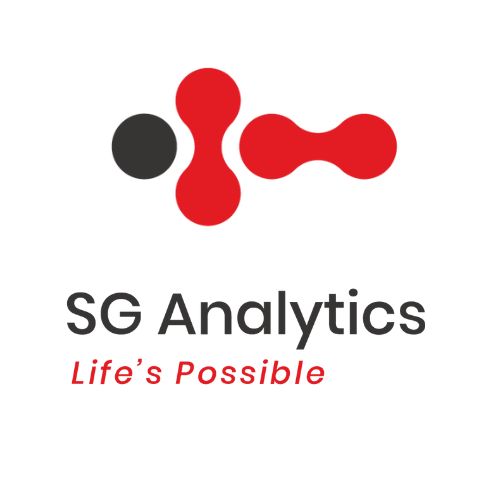The temporary rollback of tariffs between the US and China appeared to lift public market sentiment, but it offers little resolution for private equity (PE) investors. With core trade disputes unresolved and structural risks intact, the truce demands caution, not celebration.
A Pause in Tensions, Not a Fundamental Shift
On May 12, the US announced it would reduce its recently imposed 145% tariffs to 30%, while China agreed to scale back its retaliatory duties from 125% to 10%. These adjustments will remain in effect for 90 days as both countries attempt to negotiate a broader, more permanent framework. The reaction in public markets was immediate and positive. The S&P 500 climbed by 3%, the Nasdaq rose nearly 4%, and Treasury yields increased as investors revised expectations for Federal Reserve policy.
However, the truce does not constitute a decisive turning point for PE investors and dealmakers. While the easing is a constructive step, it does not provide the level of stability needed for confident long-term decision-making. Legal experts such as Justin King, a partner at King & Spalding, have noted that the reduced tariffs are “digestible” but far from final. Until negotiations yield a durable agreement, dealmakers are likely to continue operating under a cautious, wait-and-see approach.
Implications for Deal Activity
PE operates on longer timelines than public markets and rarely reacts to short-term policy shifts. A 90-day reprieve is unlikely to prompt a surge in deals or exits, especially without clearer direction on long-term trade policy. As Randi Mason of Morrison Cohen emphasized, the pause will likely signal progress, but it falls short of triggering renewed activity. Some PE-backed companies will likely use this window to reassess cross-border plans, but most firms are expected to delay deployment. Deal teams are likely to focus on planning and diligence while adopting a “prepare but don’t execute” stance until there’s stronger visibility on tariff outcomes.
Short-Term Adjustments in Portfolio Strategy
Even if deal volumes remain subdued, the temporary tariff easing is already influencing decisions at the portfolio level. PE-backed companies with supply chain exposure to China are expected to increase imports in the near term to build up inventory ahead of a possible return to higher tariffs. However, accelerated inventory accumulation would stress working capital and warehousing capacity, especially if trade talks fail. In such a scenario, firms will likely face margin compression and covenant pressures. What seems like a cost-saving hedge risks becoming a financial strain if demand projections fall short or trade dynamics shift again.
Valuation Caution Persists Despite Market Optimism
One might expect improved trade sentiment to lift valuations, but that assumption does not fully carry over into private markets. Valuation models remain anchored to fundamentals such as exit multiples, operating margins, and deployment timelines. Although lower tariffs will likely boost short-term EBITDA for some companies, the brief truce is not enough to justify repricing. While the easing reduces near-term uncertainty, it is unlikely to change underwriting assumptions or reset return thresholds. Most deal teams continue to prioritize discipline, knowing that overpaying in a fragile macro environment will compromise outcomes. Until trade policy is clearer and cost structures stabilize, valuation recalibration remains unlikely.
How Fund Managers Are Adapting
Rather than pausing activity, fund managers are using this period to strengthen their positioning. Scenario planning now reflects a range of tariff outcomes, with updated expectations around margin pressure, pricing power, and top-line forecasts. Geographic diversification is also gaining momentum as firms increasingly explore sourcing shifts to Vietnam, Mexico, and parts of Eastern Europe to reduce exposure to China. At the same time, heightened currency volatility, particularly between the yuan and the dollar, is prompting more active hedging strategies. Managers who combine strategic agility with operational resilience are likely to retain investor confidence in a more cautious fundraising environment.
Navigating Uncertainty: A Measured Investment Approach
Despite macro volatility, the US economy remains fundamentally sound. Consumer spending has held steady, employment remains robust, and inflation is trending closer to the Federal Reserve’s target. Yet, leading indicators such as business confidence and capital expenditure expectations suggest that caution is setting in across corporate America. This divergence between hard data and sentiment reflects growing uncertainty in planning horizons.
Given this backdrop, PE investors are advised to remain selective. Emphasis should be placed on quality assets with durable margins, limited cross-border exposure, and the flexibility to withstand trade-related shocks. While diversification across global markets has produced mixed results historically, many investors are now reassessing developed markets outside the US as part of broader de-risking efforts.
Conclusion
The 90-day tariff truce between the US and China is a welcome de-escalation, but it does not resolve the structural uncertainties that weigh on PE. With legal risks, fragmented global trade strategies, and unresolved geopolitical tensions still in play, this is not a signal to accelerate dealmaking but rather a window to reassess, adapt, and build resilience. In this environment, discipline, flexibility, and long-term thinking will remain the cornerstones of successful investing.
About SG Analytics
SG Analytics (SGA) is a global leader in data-driven research and analytics, empowering Fortune 500 clients across BFSI, Technology, Media & Entertainment, and Healthcare. A trusted partner for lower middle market investment banks and private equity firms, SGA provides offshore analysts with seamless deal life cycle support. Our integrated back-office research ecosystem, including database access, design support, domain experts, and tech-enabled automation, helps clients win more mandates and execute deals with precision.
Founded in 2007, SGA is a Great Place to Work® certified firm with 1,600+ employees across the U.S., the UK, Switzerland, Poland, and India. Recognized by Gartner, Everest Group, and ISG and featured in the Deloitte Technology Fast 50 India 2023 and Financial Times APAC 2024 High Growth Companies, we continue to set industry benchmarks in data excellence.

